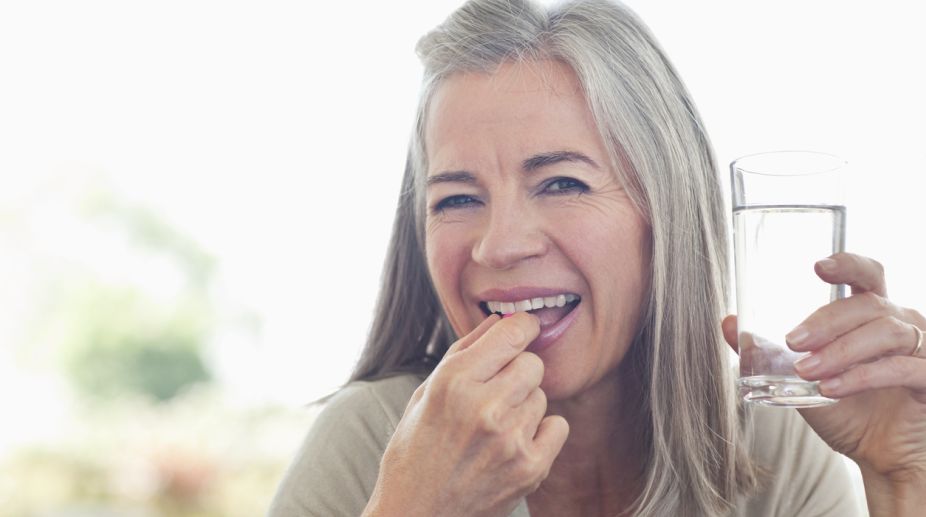After a study by researchers in China claimed that supplements containing calcium, vitamin D or both may not protect older adults against bone fractures, doctors in India have said that these supplements are not harmful for people at risk of osteoporosis, a condition that causes bones to become weak and brittle.
“There is no harm in giving calcium and vitamin D supplements to women after menopause who may be at increased risk of osteoporosis,” Pradeep Sharma, Head of Orthopaedics at BLK Super Speciality Hospital in New Delhi told IANS in a telephonic conversation.
Advertisement
The study, by researchers in China and published in the journal JAMA, involved data from more than 50,000 adults who were over 50 years of age.
They were participants in 33 randomised clinical trials comparing supplement use — calcium, vitamin D or both — with placebo or no treatment and new fractures.
Jia-Guo Zhao of Tianjin Hospital in China, and co-authors did a meta-analysis of the studies.
A meta-analysis combines the results of multiple studies identified in a systematic review and quantitatively summarises the overall association between the same exposure (supplements containing calcium, vitamin D or both) and outcomes (fracture) across all studies.
The researchers found that supplements were not associated with less risk for new fractures, regardless of the dose, the sex of the patient, their fracture history, calcium intake in their diet or baseline vitamin D blood concentrations.
“These findings do not support the routine use of these supplements (containing calcium, vitamin D, or both) in community-dwelling older adults,” the study said.
Responding to the findings, Sharma said that while doctors should guard against rampantly prescribing these supplements to anyone, those older adults with weaker bones can be given these supplements.
He said that there are tests to find out the extent of weakness in the bones, and supplements can be prescribed at the right dose after proper assessment.
“Usually, an orthopaedic recommends a combination of calcium and vitamin D supplement to the older adults because both the combinations are two major nutrients to the bone health. Unfortunately, seniors are much vulnerable to calcium and vitamin D deficiency as compared to younger people because of the changes that occur with advancing age,” said Avtar Singh, an orthopaedic surgeon at Amandeep Hospital in Amritsar, Punjab.
“Vitamin D and calcium are necessary for better bone health and we often prescribe these in the form of supplements. However, it is always more beneficial to take these in the diet forms,” said Aashish Chaudhry, an orthopedic surgeon at Aakash Healthcare in New Delhi.
“Vitamin D helps body to use calcium. This in turn helps bolster bone health,” Chaudhry said.
People who have achieved their peak bone mass can also follow few exercises and a healthy diet routine to lower the risk of brittle bones and fracture, according to the experts.
While sunlight is considered the best source for vitamin D, some vegetables can also help boost the level of this vitamin.
“The recommended daily intake of vitamin D for most adults is 600 IU (international units), or 800 IU after age 70. It is hard to expect from older people to do enough regular exercise and get adequate sunshine or even adjust their diet accordingly. Hence, it is advisable to take these supplements,” Chaudhry said.
